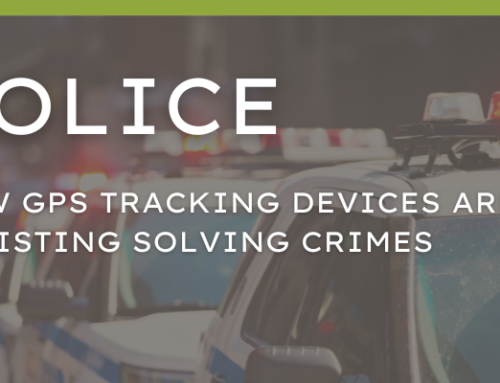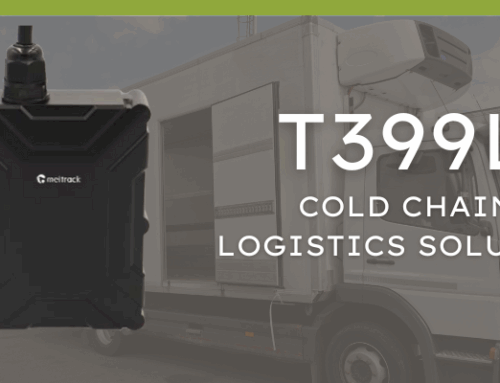As fuel prices continue to rise, fuel theft has become a major concern for businesses operating in industries such as logistics and transportation. To combat this issue, integrating fuel sensors with GPS trackers provides a powerful solution. In this article, we will explore the hidden benefits of this integration and how it can help prevent fuel theft effectively.
By combining fuel sensors with GPS trackers, businesses gain real-time insights into their fleet’s fuel usage and location. This integration not only helps track fuel consumption but also detects any instances of fuel leakage or unauthorized fuel draining, enabling prompt action to be taken. These sensors help businesses monitor fuel levels accurately, providing valuable data for efficient fleet management, reducing costs, and optimizing operations.
Furthermore, integration with GPS trackers allows businesses to pinpoint the exact location of their vehicles, ensuring accountability and deterring theft. The data captured by these devices can provide valuable evidence in case of fuel theft incidents, aiding in investigations and minimizing losses.
With fuel theft on the rise, integrating fuel sensors with GPS trackers is a proactive measure that businesses can take to protect their valuable assets and optimize fuel management. Stay tuned to discover more about this powerful solution and the benefits it offers.
Understanding the Hidden Benefits of Integrating Fuel Sensors with GPS Trackers
Fuel sensors and GPS trackers are two powerful tools that, when combined, offer numerous benefits to businesses. These devices work in tandem to provide real-time monitoring and valuable data for improved fuel management and security. Let’s delve deeper into how fuel sensors and GPS trackers work individually before exploring the advantages of their integration.
How do Fuel Sensors Work?
Fuel sensors are devices that measure and monitor the fuel levels in vehicles. They are typically installed in the fuel tank and use various technologies such as ultrasonic, capacitance, or resistive methods to accurately measure the fuel level. These sensors are connected to a monitoring system, which collects the data and provides real-time information about the fuel levels.
Fuel sensors are designed to be highly accurate and reliable, ensuring that businesses have precise information about their fleet’s fuel consumption. They can detect fuel leakage or unauthorized fuel draining by monitoring sudden drops in fuel levels. This early detection enables businesses to take immediate action and prevent further loss or damage.
How do GPS Trackers Work?
GPS trackers, on the other hand, use global positioning system (GPS) technology to determine the exact location of vehicles. These trackers are small devices that can be easily installed in vehicles and are equipped with GPS receivers that communicate with satellites to obtain location data. The data is then transmitted to a central monitoring system, which allows businesses to track and monitor their vehicles’ movements in real-time.
GPS trackers provide businesses with valuable information such as the current location, speed, and route history of their vehicles. This data can be accessed through a user-friendly interface, making it easy for businesses to track their fleet and ensure efficient operations. In addition, GPS trackers can also send alerts or notifications in case of any unauthorized movements or deviations from designated routes, helping businesses identify potential theft or misuse.
The Advantages of Integrating Fuel Sensors with GPS Trackers
Now that we understand how fuel sensors and GPS trackers work individually, let’s explore the hidden benefits that arise from integrating these two technologies. The combination of fuel sensors and GPS trackers offers a comprehensive and proactive solution for fuel theft prevention, improved fuel management, and increased security.
1. Real-time Monitoring and Alerts
One of the key advantages of integrating fuel sensors with GPS trackers is the ability to monitor fuel levels in real-time. Businesses can access accurate and up-to-date information about their fleet’s fuel consumption, allowing them to make informed decisions regarding fuel management. This real-time monitoring helps businesses identify any sudden drops in fuel levels, which could indicate unauthorized fuel draining or leakage.
Moreover, fuel sensors integrated with GPS trackers can send real-time alerts or notifications to businesses in case of any unusual fuel consumption patterns. This allows for immediate action to be taken, preventing further loss or damage. For example, if a vehicle’s fuel level drops significantly when it is not in use, it could indicate fuel theft, and businesses can quickly investigate and take appropriate measures.
2. Improved Fuel Management and Efficiency
Integrating fuel sensors with GPS trackers provides businesses with valuable data for optimizing fuel management and improving overall efficiency. By accurately monitoring fuel levels, businesses can identify any inefficiencies or excessive fuel consumption within their fleet. This information enables businesses to implement strategies to reduce fuel wastage, such as driver training programs or route optimization.
Furthermore, the integration of fuel sensors and GPS trackers allows businesses to track the fuel consumption of individual vehicles. This data can be used to identify vehicles that are consistently consuming more fuel than others, indicating potential maintenance or operational issues. By addressing these issues promptly, businesses can improve fuel efficiency, reduce costs, and prolong the lifespan of their vehicles.
3. Increased Security and Theft Prevention
Integrating fuel sensors with GPS trackers enhances the security of a fleet by providing real-time location data and deterring theft. GPS trackers accurately pinpoint the exact location of vehicles, ensuring accountability and minimizing the risk of theft or misuse. In the event of a fuel theft incident, the data captured by GPS trackers can provide valuable evidence for investigations and help recover stolen fuel.
Moreover, the integration of fuel sensors with GPS trackers allows businesses to set up geofencing. Geofencing is a virtual boundary that can be defined around a specific area or route. If a vehicle equipped with a GPS tracker and fuel sensor enters or exits the defined area, an alert is triggered. This feature helps businesses detect any unauthorized movements or deviations from designated routes, allowing for immediate action to be taken to prevent theft or misuse.





